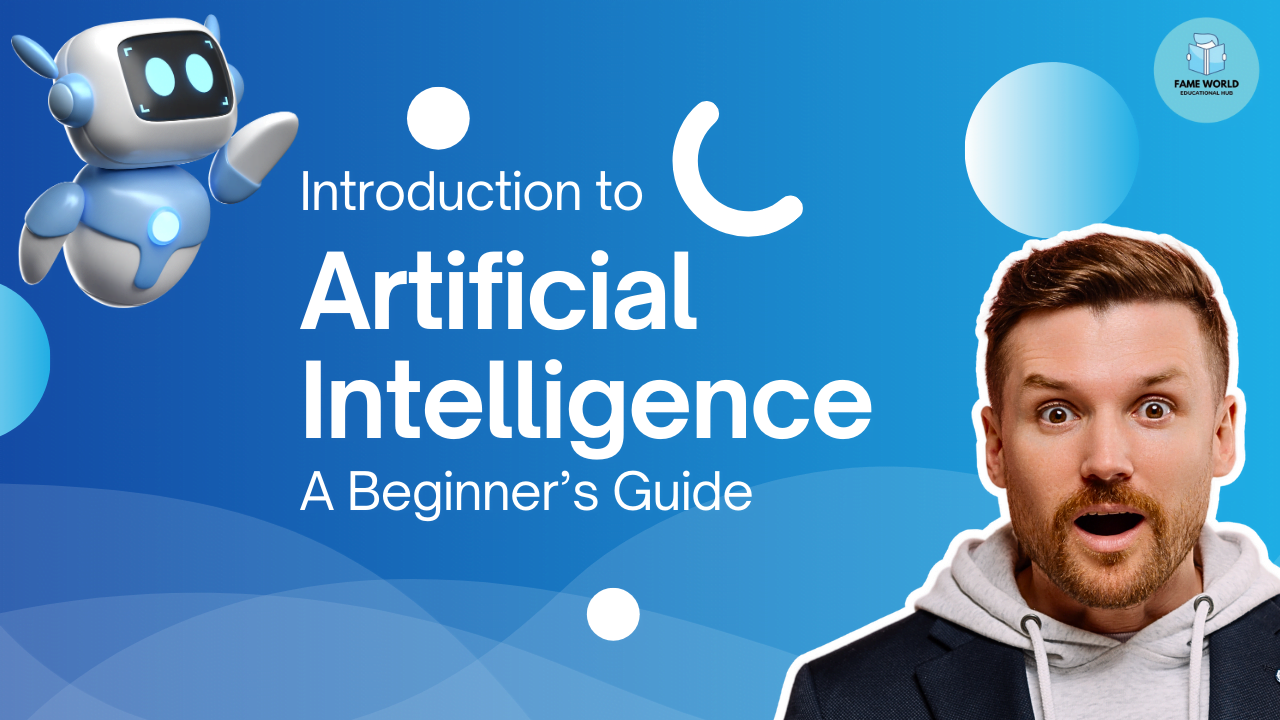Artificial Intelligence (AI) has become one of the most transformative technologies of the 21st century, influencing various aspects of our daily lives, from smart assistants like Siri and Alexa to recommendation systems on Netflix and Amazon. This beginner’s guide aims to provide a clear and comprehensive introduction to AI, breaking down its core concepts, applications, and future trends.
What is Artificial Intelligence?
At its core, Artificial Intelligence refers to the simulation of human intelligence in machines that are programmed to think and learn like humans. The goal of AI is to enable computers to perform tasks that typically require human intelligence, such as problem-solving, pattern recognition, and decision-making.
AI can be categorized into two broad types:
Narrow AI (or Weak AI): This type of AI is designed to perform a specific task or a set of related tasks. Examples include chatbots, image recognition systems, and voice assistants. Narrow AI is currently the most common form of AI.
General AI (or Strong AI): This form of AI is still largely theoretical and aims to possess the ability to understand, learn, and apply knowledge in a manner similar to human intelligence. General AI would be capable of performing any intellectual task that a human can do. It remains a long-term goal and is not yet realized.
Key Concepts in AI
1. Machine Learning (ML):
Machine Learning is a subset of AI that involves training algorithms to recognize patterns and make predictions based on data. Unlike traditional programming, where rules are explicitly written by programmers, machine learning allows systems to learn from data and improve over time.
Supervised Learning: Involves training a model on a labeled dataset, where the input and corresponding output are known. The model learns to map inputs to outputs and can make predictions on new data.
Unsupervised Learning: Involves training a model on an unlabeled dataset. The model tries to identify patterns and structures within the data without predefined labels
Reinforcement Learning: Involves training a model to make decisions by rewarding desired behaviors and penalizing undesired ones. It is often used in scenarios like game playing and robotics.
2. Deep Learning:
Deep Learning is a subset of machine learning that uses neural networks with many layers (hence “deep”). These networks are inspired by the human brain and are particularly effective in tasks like image and speech recognition.
3. Natural Language Processing (NLP):
NLP is a branch of AI focused on the interaction between computers and human language. It involves enabling machines to understand, interpret, and respond to human language in a meaningful way. Applications of NLP include language translation, sentiment analysis, and text generation.
4. Computer Vision:
Computer Vision is a field of AI that enables machines to interpret and understand visual information from the world. This includes tasks like image classification, object detection, and facial recognition.
Applications of AI
AI is integrated into many aspects of our lives. Here are some common applications:
Healthcare: AI is used for diagnosing diseases, predicting patient outcomes, and personalizing treatment plans. For example, AI-powered imaging systems can detect early signs of conditions like cancer.
Finance: AI is used for fraud detection, algorithmic trading, and risk management. Machine learning algorithms can analyze vast amounts of financial data to identify trends and make predictions.
Transportation: AI is central to the development of autonomous vehicles. Self-driving cars use AI to navigate, detect obstacles, and make real-time decisions.
Retail: AI enhances customer experiences through personalized recommendations, chatbots for customer service, and inventory management.
Entertainment: Streaming platforms like Netflix use AI to recommend movies and shows based on user preferences and viewing history.
Ethical Considerations and Challenges
While AI holds great promise, it also raises important ethical considerations:
Bias and Fairness: AI systems can inherit biases present in the training data, leading to unfair or discriminatory outcomes. Ensuring fairness and transparency in AI is crucial.
Privacy: AI systems often require access to large amounts of data, raising concerns about data privacy and security.
Job Displacement: The automation of tasks through AI can lead to job displacement. It is important to address the impact of AI on employment and explore strategies for reskilling and upskilling the workforce.
The Future of AI
The future of AI is both exciting and uncertain. Advancements in AI technology continue to push the boundaries of what machines can do, with potential breakthroughs in areas like quantum computing and brain-computer interfaces. As AI evolves, it will be crucial to navigate the challenges and ethical implications to ensure that its benefits are maximized while minimizing potential risks.
Getting Started with AI
For those interested in exploring AI, here are some steps to get started:
Learn the Basics: Familiarize yourself with the fundamental concepts of AI, machine learning, and deep learning. Online courses and tutorials can provide a solid foundation.
Explore Tools and Libraries: Experiment with popular AI tools and libraries such as TensorFlow, Keras, and scikit-learn. These frameworks make it easier to build and deploy AI models.
Work on Projects: Apply your knowledge to real-world projects. Building and experimenting with AI models can help solidify your understanding and develop practical skills.
Stay Updated: AI is a rapidly evolving field. Keep up with the latest research, trends, and developments to stay informed.
Conclusion
Artificial Intelligence is a dynamic and transformative field with the potential to revolutionize various industries and aspects of our daily lives. By understanding its core concepts, applications, and ethical considerations, you can gain a solid foundation and explore the exciting possibilities that AI has to offer. Whether you’re a beginner or an aspiring AI practitioner, there has never been a better time to dive into the world of AI and discover its potential.



